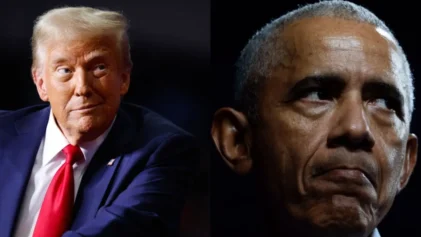Carla del Ponte, a member of the U.N. panel investigating Syria, says that rebels there may have used poison gas in conflicts with the Syrian military. The claim threw a curve in U.S. calculations in approach to the region, although the White House immediately cast doubt on her statement.
On Sunday, del Ponte told Swiss-Italian TV that there were “strong, concrete suspicions” the Syrian rebels had used poison gas, citing testimony from survivors in hospitals outside Syria.
“This was used on the part of the opposition, the rebels, not by the government authorities,” she said.
But her claims were quickly disputed by both the White House, which is considering sending arms to the Syrian rebels, and other Syrian investigators from the U.N.
“We are highly skeptical of any suggestions that the opposition used chemical weapons,” said White House spokesman Jay Carney. “We think it highly likely that the Assad regime was responsible, but we have to be sure about the facts before we make any decisions about a response.”
The U.N.’s Syria investigators yesterday said there was thus far “no conclusive proof” that either side in the conflict had used chemical weapons.
“The Independent International Commission of Inquiry on the Syrian Arab Republic wishes to clarify that it has not reached conclusive findings as to the use of chemical weapons in Syria by any parties to the conflict,” the commission said in a statement.
Rebel supporters said that if the rebels had access to chemical weapons, as del Ponte is claiming, they would have been tempted to use them much earlier against Assad’s military bases.
These new claims about rebels complicate White House calculations on how to respond to Syria—which some analysts believe was the intent of del Ponte’s statements.
President Obama is being pressured in Washington to do something about the conflict, during which an estimated 70,000 Syrians have been killed.
The claims that the Syria government used chemical weapons, which the White House says still hasn’t been proven conclusively, have added to the calls by Congress for Obama to take more aggressive action. The president continues to insist the evidence gathered by Britain and France is not conclusive.
“We have seen, in the not too distant past, the consequences of acting before the facts were available,” said Carney.
Last week, British Defense Secretary Philip Hammond acknowledged that Western intelligence services would probably have to wait for another chemical attack before gathering enough information to trace it back to the government, because the quality of earlier evidence had degraded over time.
The pressure on governments to respond to Syria was intensified by recent airstrikes conducted by the Israeli military.
Israel’s bombs targeted stocks of Iranian-supplied Fateh-110 missiles, which have a 200-mile range and precision guidance systems, in airstrikes near Damascus on Friday and Sunday. The strikes killed 42 Syrian soldiers, according to the Syrian Observatory for Human Rights.
Israel has repeatedly warned that it would act to prevent sophisticated weapons from reaching Hezbollah in Lebanon or jihadist fighters inside Syria.
Israel was “within its right to prevent the transfer of this kind of weapon to Hezbollah,” Carney said.
While Israel normally does not formally acknowledge such strikes, an Israeli politician close to Prime Minister Benjamin Netanyahu said the action had been directed “against Hezbollah and not against the Syrian regime.”
Israeli lawmaker and security expert Tzachi Hanegbi told Israel Radio that the aim was “to keep advanced weapons from Hezbollah as soon as intentions are exposed, and refrain from tension with Syria.”
China’s foreign ministry spokeswoman Hua Chunying told reporters, “We oppose the use of military force and believe any country’s sovereignty should be respected. China also calls on all relevant parties to begin from the basis of protecting regional peace and stability, maintain restraint and avoid taking any actions that would escalate tensions and jointly safeguard regional peace and stability.”


